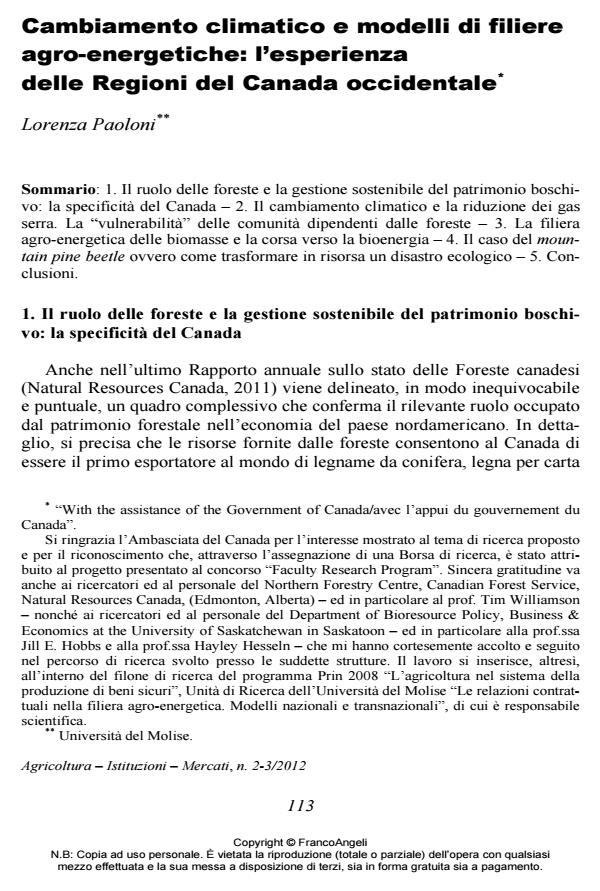Climate Change and Agro-energy Chain Models. The Experience of Western Canada
Journal title AGRICOLTURA ISTITUZIONI MERCATI
Author/s Lorenza Paoloni
Publishing Year 2013 Issue 2012/2-3
Language Italian Pages 15 P. 113-127 File size 340 KB
DOI 10.3280/AIM2012-002013
DOI is like a bar code for intellectual property: to have more infomation
click here
Below, you can see the article first page
If you want to buy this article in PDF format, you can do it, following the instructions to buy download credits

FrancoAngeli is member of Publishers International Linking Association, Inc (PILA), a not-for-profit association which run the CrossRef service enabling links to and from online scholarly content.
Climate change is a key global issue in both the southern and northern hemispheres and affects food security in disparate proportions around the globe because it reduces biodiversity, modifies crop growing patterns and increases poverty. One important answer to ameliorating the damaging effects of climate change is the improvement of the links between agriculture and forestry. Properly designed policy is fine, but should promote sustainable agriculture while reducing deforestation and improving rural livelihoods. Additionally, it should make more valuable the possible contractual relationships between farmers and energy producers in the agro-energy chain where farmers use wood to produce renewable energy. One interesting aspect in Canadian energy production studies utilizes the residual biomass left from the Mountain Pine Beetle epidemic that killed the timber. As a result of the climate change the killer beetle self-reproduces more frequently and at a greater quantity than expected, therefore, there is a direct and proportionate increase in timber damage. This timber is then used as biomass to produce renewable energy.
Keywords: Climate Change, Agro-energy Chain Models, Canada.
Lorenza Paoloni, Cambiamento climatico e modelli di filiere agro-energetiche: l’esperienza delle Regioni del Canada occidentale in "AGRICOLTURA ISTITUZIONI MERCATI " 2-3/2012, pp 113-127, DOI: 10.3280/AIM2012-002013